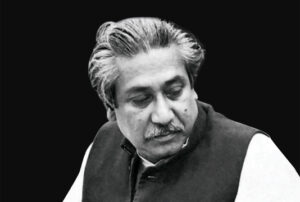The Bangladesh Telecommunication Regulatory Commission has suspended the operation of Citycell – Pacific Bangladesh Telecom Limited – for its failure to pay Taka 477.51 crore spectrum and license renewal fees and other charges that the company owed to the government. But nothing is said about the nearly one million subscribers of the company many of whom paid prohibitive amounts of money to be the first generation subscribers of cellphones in Bangladesh.The only CDMA transmission-based operator Citycell had long been famed for offering low cost call charges for some years, although at the begining since 1989 as the lone mobile phone operator it did monopoly business for about seven years taking the highest subscription and call charges. Its voice calls were also popular for distinct-clear sounds. Citycell modems were also very popular untill one year ago when services started deteriorating.
Bangladesh now has five other mobile telecom operators – Airtel, Banglalink, Grameenphone, Robi and TeleTalk. As of May 2016 their numbers of subscribers according to BTRC statistics were: Grameen Phone Ltd. (GP) 57.393mn; Banglalink Digital Communications Limited 32.231mn; Robi Axiata Limited (Robi) 27.703mn; Airtel Bangladesh Limited (Airtel) 10.125mn; Pacific Bangladesh Telecom Limited (Citycell) 0.735mn and Teletalk Bangladesh Ltd. (Teletalk) 4.463mn. The total number of subscribers stood at 132.649mn.
BTRC collects between Taka 10,085 crore (2014) and Tk7357.98 crore target set for the the current fiscal year (2016-17). The revenue earning from licence renewal, spectrum auction and revenue sharing of mobile operators do not come every fiscal year. Such earnings from mobile phone companies came at 5-10 years intervals.
Citycell subscribers suffered also for unavailability of CDMA mobilephone sets that were needed only for service of this operators. All other operators in Bangladesh offer GSM transmissioon and mobile sets taking this mode of transmission are widely available at cheaps prices. However limited their number is many Citycell subscribers had been using costly smartphones which have become uselsss. The Zoom Ultra modems of Citycell that were very popular have also been rendered useless. Subscribers of this operator were waiting for improvement of its service.
There has been talk of Citycell transforming from CDMA to GSM service for some years now. The company owes its subscribes the money it collected by selling the mobile and modem sets to its subscribers or to exchange those for GSM sets that are used by all other operators.
BTRC which regulates the services of both landphone and mobilephone operators was setup to end the monopoly of the T&T board which from the beginning used to serve as both service provider and regulator for a long time, the regulatory function was transferred to the Ministry of Posts and Telecommunications at a later stage. Some of the monopolistic pressures that it used to exert on subscribers are still in force. For instance it’s the responsibility of T&T ( now transformed into Bangladesh Telecommunication Company Limited) subscribers to prove that they paid all arrear bills if there is fault in maintenance of ledger books at its revenue offices. One would find many instances of proving arrear bill claims wrong by producing payment receipts. Those who for some reason or the other cannot locate receipts, say dated months or years back, have to pay again. This system remains in practice with some other utility services like electricity and water.
New telephone operators did demand the setting up of an independent regulator – when their services expanded to many times more than those of the T&T Board – which would be free from the pressure of being a service provider itself. It is today’s BTRC. The independent regulator was also expected to be of benefit to the ordinary subscribers, which is seldom seen although telephone companies are giving the BTRC huge revenue out of many times more paid by the nearly 132.649 million subscribers.
For instance, when about a quarter dozen wireless telephone (PSTN) services introduced in the early part of the last decade of the current century were abruptly shut down in the last part of the same decade, the interests of the subscribers of the new services were not taken into account at all. All their subscribers had bought wireless telephone sets that are remaining idle for eight years now. Weren’t the Citycell mobile sets and Zoom Ultra modems and the wireless telephone sets imported by spending valuable foreign exchange? Shall not wastage of these units amount to national wastage? Most important of all why should the subscribers bear the brunt for no fault of theirs? – Mostafa Kamal Majumder




